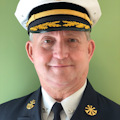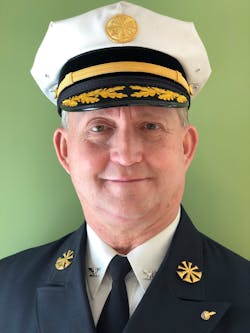First responders deal with death daily. This includes the circumstances of a patient passing from a long-term illness or disease and the sudden death of a loved one from a traumatic event. This can be particularly distressing when a child is involved. The culture and beliefs are changing because of the aging of the population, increasing terminal illnesses and chronic health problems, shortened hospital stays and improved technology that allows the chronically ill to return home for care. Additionally, societal changes affect our attitudes and practices that surround death and dying, including having a greater understanding and support for those who decide to die at home and recognizing the needs of family and friends in an end-of-life event. This puts higher expectations and additional stress on first responders, which can have long-lasting effects. Acknowledging death and dying will help you to deal with these diverse situations.
Guilt and healing
Dr. Elisabeth Kübler-Ross famously delineated the five stages of grief that are experienced by those who are dying: denial, anger, bargaining, depression and acceptance. The patient, as well as the family and friends of the individual, must deal with these emotions in long-term-care situations.
Conversely, a death that’s caused by an unexpected sudden event affects everyone more rapidly.
First responders deal with patients dying in front of them and the death of family members and friends. They likely never forget their first unexpected death, which can leave a scar for their entire professional and personal life.
Grief is a natural response to loss. It’s part of the healing process, which must take place for the wound to mend. Some of this is finding closure in the circumstances that led to the death. Many turn their anger toward spiritual deities, and it isn’t uncommon for grief to turn into guilt, ultimately blaming oneself for the death.
You must remember that you weren’t responsible for putting your patient in the life-ending situation and that patients will die no matter how well or quickly that you perform your duties. If you forget these things, these experiences will affect you on every call afterward.
In some cultures, when a child passes away, the child is believed to become an angel, shortening the mourning process. In Hinduism, death is natural, and the amount of pain that people experience in their life and during the dying process is related to their karma. Muslims show emotion openly, often screaming or slapping their face.
First responders must respect other cultures’ and religions’ dying processes and traditions.
Seek out others
First responders handle the blood, guts and death differently. If they have young children and a young patient dies, it only is natural to think about their child’s mortality. It might not affect them immediately, but it could later, which could cause them to freeze or react unprofessionally (i.e., crying, because they can’t help but empathize with the emotions of the victim’s family and friends).
First responders focus on the task that’s in front of them, sometimes suppressing natural emotions that would divert them from doing their job. The tricky part is predicting and recognizing when this happens relative to your life experiences and coping mechanisms. We all cope with the stresses of life on the job and personally differently. Some of these mechanisms, such as drinking, taking drugs and even smoking, have untoward effects on your physical and mental health. Family members might never understand your thoughts, because they aren’t in the business of saving lives under extreme conditions.
You must seek better ways of dealing with this and other stresses, to focus on the positive—e.g., working out or talking with a coworker, particularly someone who experienced what you are going through. Seek professional help from within your organization or through outside agencies. Don’t keep these emotions bottled up.
Pursuing help isn’t a weakness
In failure, the psychological health of first responders is an understatement and must be addressed. More of us die by our own hand than we do by the hazards of the job. First responders must be better advocates when there’s nothing more that they can do for the patient. Remember, we are human, and most of us aren’t taught how or what to experience in these cases. We must learn about death and dying. We must grieve and cope while supporting each other physically, emotionally and mentally. If you need help, do not hesitate to ask for it.
About the Author

Richard Bossert
Richard Bossert is a retired operations chief for the Philadelphia Fire Department. He started in the fire/rescue services in 1970, volunteering for the Warminster, PA, Fire Department. He worked for three career fire departments: Chester, Bensalem and Philadelphia. Bossert became a certified EMT in 1973, then paramedic in 1980. He received a bachelor’s degree in pre-med from Pennsylvania State University in 1977 and a master’s degree in public safety administration from St. Joseph’s University in 2003.
